Last Updated on July 26, 2022 by Sarah Wilson
What is It Like Living in Tbilisi?
Table of contents
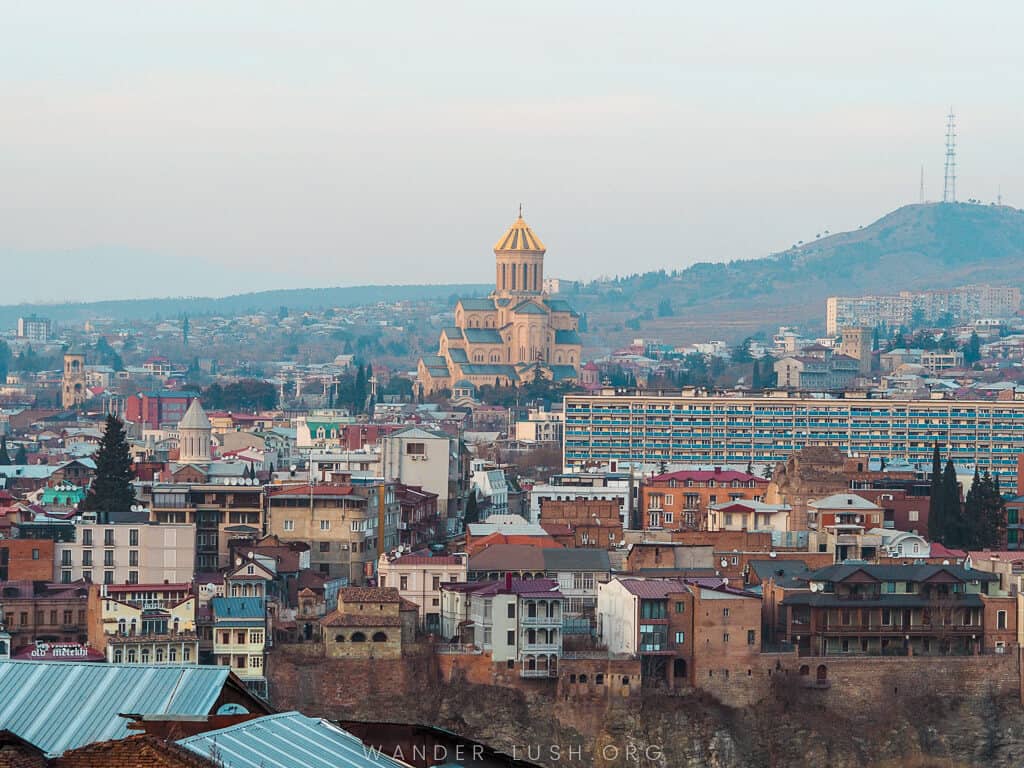
One of Europe’s up-and-coming capitals, Tbilisi’s popularity as a tourist destination has absolutely skyrocketed in recent years.
Most visitors to the Caucasus region are drawn to the Republic of Georgia because of the mountain hiking, the wine (the earliest evidence of wine-making on earth, dated back to 6,000 BC, was discovered in the county’s south) and the history. Living in the capital gives you unfettered access to all of this plus much, much more.
Tbilisi isn’t perfect, but in many ways it’s an ideal base for digital nomads and long-stay travellers alike. Passport holders from more than 95 countries can legally live in Georgia for 365 days without the need for a visa (just be sure to familiarise yourself with your tax obligations if you’re a remote worker). This can easily be reactivated by crossing a land border.
Tbilisi is an incredibly safe city (consistently named among the safest in the region) with a mild year-round climate and as you’ll soon see, a very affordable cost of living.
But you don’t move to Tbilisi just because the weather is nice and it’s cheap – you move here because of the creative vibrancy and the cultural richness, the heritage, and of course the amazing foodie scene. These things, combined with the generosity and warmth of the Georgian people, are what makes Tbilisi such a wonderful place to live.
Cost of Living in Tbilisi
Living in Tbilisi is very affordable, especially by European city standards.
The official currency in Georgia is the lari (abbreviated to GEL), which is divided into 100 tetri.
Cost of Accommodation in Tbilisi
There is no shortage of affordable long-term accommodation options available in Tbilisi. Majority of apartments come fully furnished. Some amenities – notably an oven in the kitchen and an elevator inside the building (many older blocks are walk-ups) – aren’t always included so if these are important to you, you might have to shop around.
A one or two-bedroom apartment in a central neighbourhood costs between 350-500 USD per month. If you don’t mind living in an older building or being a bit further out, you can easily find a place for as little as 200-250 USD per month.
Popular Tbilisi neighbourhoods to live in include Vera, Vake and Saburtalo. Vera is very central with great cafes, and Vake has lots of green spaces, making it great for families. Saburtalo is a bit further from the centre but has lots of apartment blocks and good local food options.
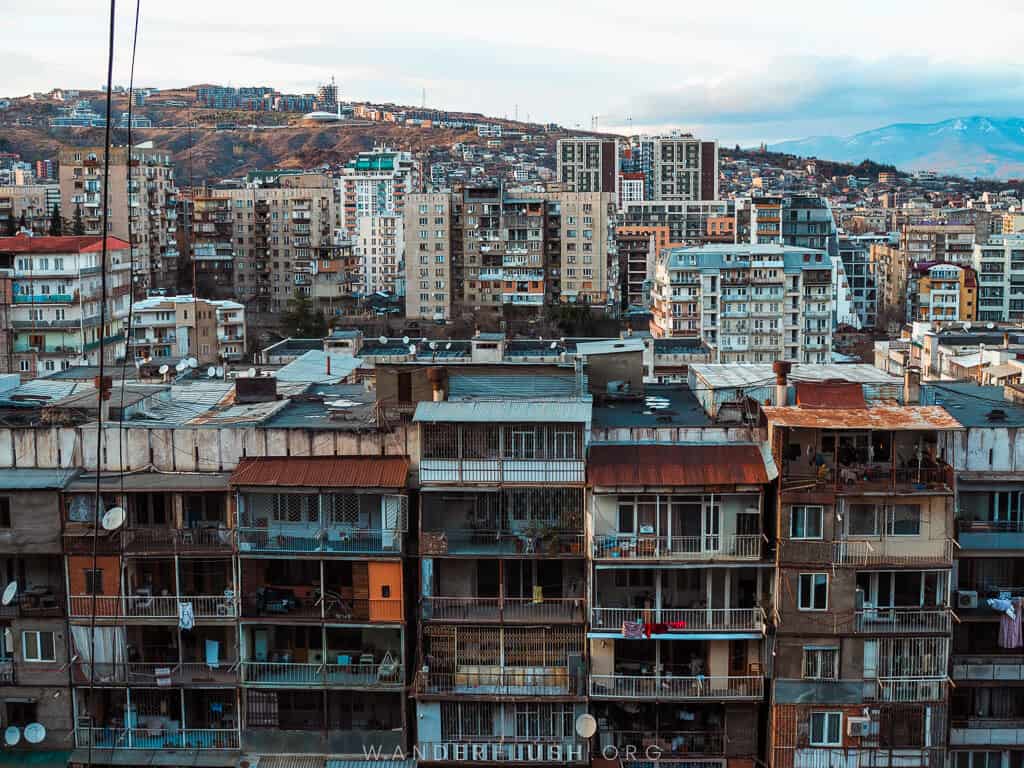
Old Tbilisi and the historic neighbourhood of Sololaki are the most atmospheric parts of the city, but accommodation options here are more limited (and usually more expensive). Another option is Avlabari, a historic area on the opposite bank of the Kura river to the main Old Town. It has well-priced rentals and is walking distance from the centre. If you want to live in a traditional Tbilisi house with a central courtyard, consider Marjanishvili.
Rentals are advertised in Facebook groups such as this one and on websites such as myhome.ge. It’s also worth checking Airbnb – many hosts offer generous monthly discounts.
Utilities
Unless you’re renting through Airbnb, utility bills are paid separately. Normally your landlord will send you a bill every month or every quarter. Expect to pay around 50-70 USD per month for electricity, gas and water for two people depending on the season.
Very few buildings in Tbilisi have central heating – most use gas heaters. Thus utility bills are usually significantly higher in the winter months, especially if you’re living in an older building that’s poorly sealed.
Mobile phone & WIFI
One of the best things about living in Georgia – especially if you’re a digital nomad or remote worker – is having access to fast and affordable internet. Most people have a router at home plus a mobile data package as a backup. Even though the internet network is reliable, electricity outages are not uncommon so it’s best to have both.
Unlimited cable/ADSL internet costs around 15-20 USD per month depending on the provider. Magti is generally considered to have the best coverage. Speeds of up to 60 Mbps up/down are achievable in Tbilisi.
A 5GB mobile data package on Magti costs 3.60 USD for 30 days, and an unlimited 30-day package costs 45 USD. It’s easy to buy and activate a local sim card – just drop into any Magti branch in town and staff will assist you with the process. Avoid buying a sim card at the airport as they’ll often be linked to less-than-ideal tourist packages.
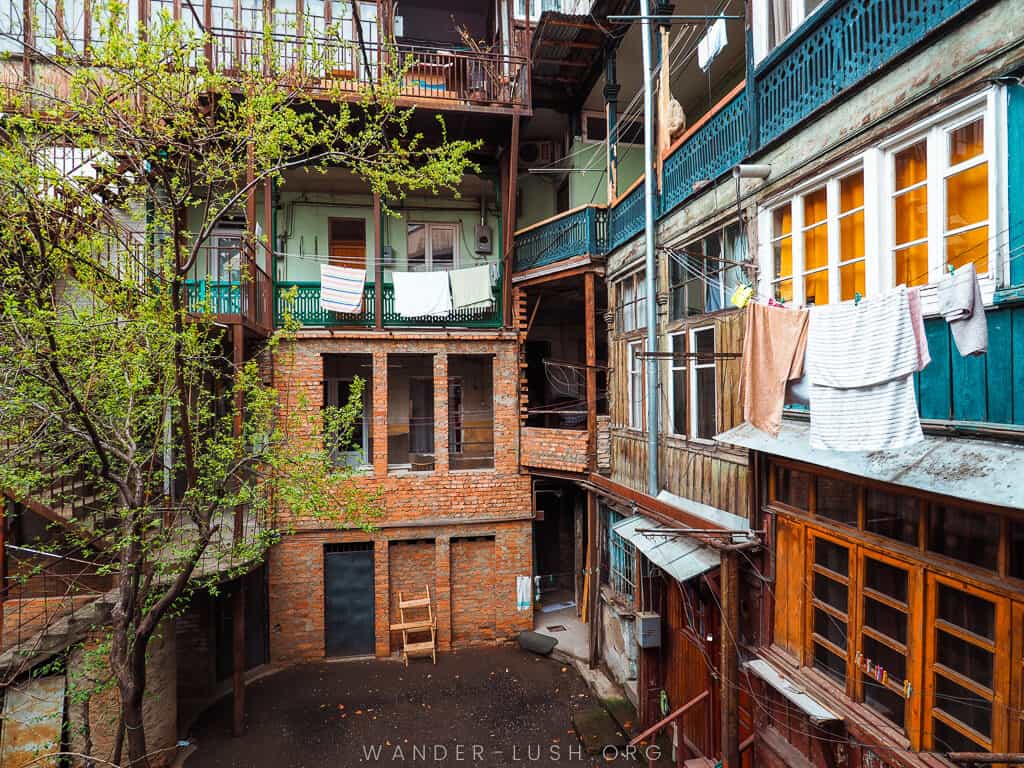
Transportation
Tbilisi is relatively compact and a very pleasant city to walk in (outside of peak hour), with wide sidewalks, a few pedestrianised streets, and plenty of parks.
There is a good public transport network too, with both an underground metro and city buses. Buses are linked with Google Maps – just beware that recent road works have impacted some routes and the maps haven’t been updated yet. Smaller buses known as marshrutka minivans also run in Tbilisi but are a bit tricker to figure out. This website is handy for checking schedules.
To use public transport in Tbilisi, you’ll first need to buy a rechargeable Metromoney card for 2 GEL (60 US cents). This can be purchased from any metro station and topped up at payboxes, ATM-like machines that are ubiquitous throughout the city (you can also use them to top up your mobile, pay your utility bills, and for a whole host of other services). A bus or metro fare anywhere in Tbilisi costs a flat 50 tetri (15 US cents).
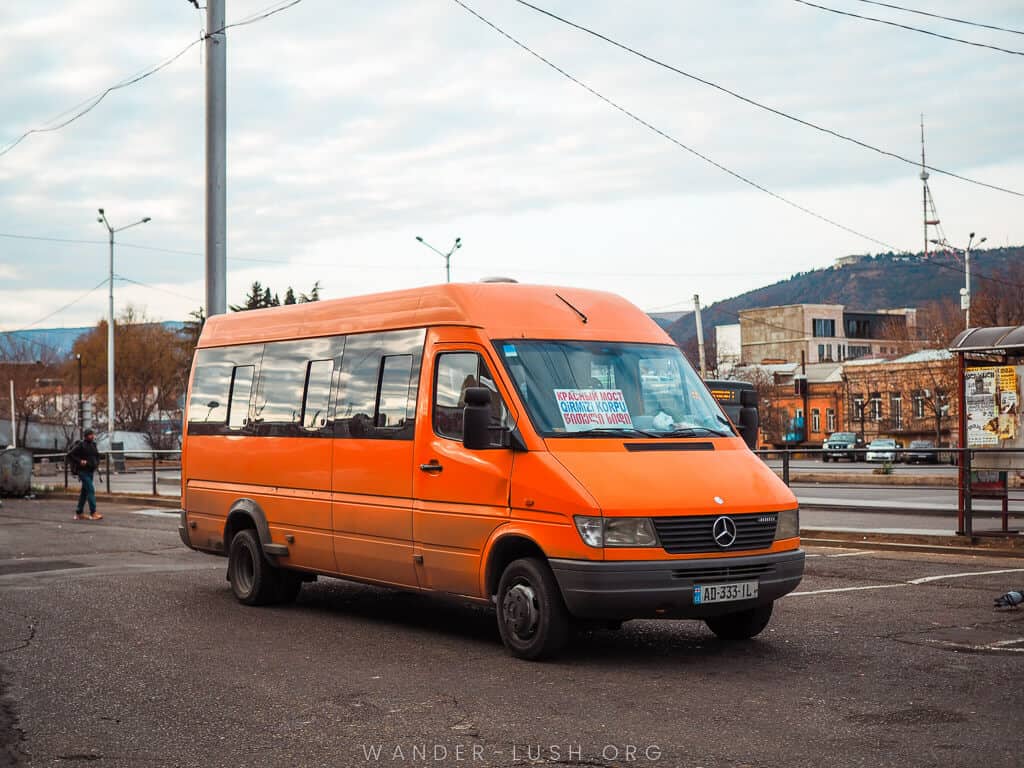
Taxis in Tbilisi cost on average 4-10 GEL (1-3 USD) depending on the time of day and how far you’re travelling. Taxis are regulated but unmetered, meaning you have to negotiate a price with the driver before you set off. This can be very confusing if you don’t speak the language.
For this reason, it’s best to download a taxi booking app. Bolt is the most popular and most reliable, while Maxim is handy to have on your phone as well because it works in some smaller cities around Georgia.
Cost of Food & Drink in Tbilisi
Tbilisi is a foodie’s paradise. If you’re no home cook, you’ll have no trouble getting your hands on nutritious, hearty meals for a very affordable price. Georgian cuisine is diverse and flavourful, and many dishes are vegetarian or even vegan-friendly by nature. Khinkali soup dumplings and Khachapuri cheese bread are the two most well-known delicacies – but there’s a whole lot more to discover.
A meal for two people at a local restaurant costs around 15-25 USD including wine or beer and more food than you could ever hope to finish. International dining is a tad more expensive; add 10-20% to the total cost.
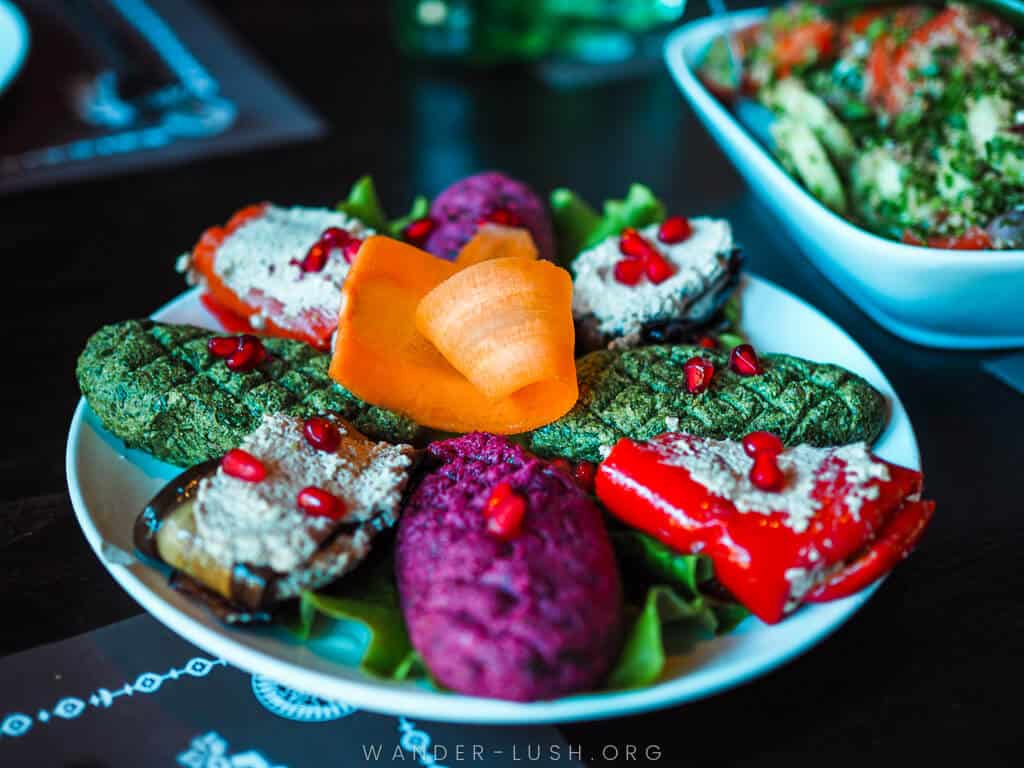
Fresh produce is very affordable in Tbilisi, especially if you shop at the market or buy from your local fruit and veg vendor. Carrefour is the most popular supermarket chain and offers well-priced staples, while specialty grocers such as Gastronome import products from the US and Europe. Budget 40-60 USD per week for groceries for two people.
Georgia produces incredible honey, jams, preserves, spices and dairy products, so there’s really no excuse not to pig out on all things locally made and grown. The Soplidan.ge website offers seasonal produce and specialty products from farmers around the country.
Entertainment
There are tons of free activities in Tbilisi to keep you busy. The old neighbourhoods alone can keep you entertained for hours, especially if you’re a fan of architecture and street photography.
Because Tbilisi is located in a valley, there are some terrific easy and more challenging hiking trails in the hills around the city, each offering panoramic views from the top. Two of the most popular are the walk up to the Tbilisi TV Tower and the hike from Turtle Lake to Mtatsminda.
There are a couple of museums and galleries in Tbilisi that are worth visiting at least once, including the Georgian National Museum, the Silk Museum, the Museum of Books, and the wonderful Open Air Museum of Ethnography. Some are free, while entrance to ticketed galleries and museums usually costs around 1.50 USD for adults.

Tbilisi has a rich arts, theatre and music scene. It’s worthwhile seeking out as many live performances as you can. The national ballet often performs at the Opera and Ballet Theatre of Tbilisi on Rustaveli Avenue, with tickets starting from as little as 10 USD.
Venues such as LOKAL Tbilisi and Fabrika host regular events including pop-up markets, film screenings and quiz nights. Tbilisi Social Calendar is a good place to learn about these happenings and other expat-focused meetups.
Total Costs for Living in Tbilisi Per Month
If you’re living in an apartment in the city centre, eating out three times a week and using public transportation to get around, then you can expect to spend somewhere in the neighbourhood of 950-1200 USD per month for two people.
Accommodation is by far the biggest cost of living in Tbilisi, so if you choose your apartment wisely, you can get by on significantly less.
Tips for Living in Tbilisi
Tbilisi isn’t perfect – no city is – so it’s important to be aware of the potential pitfalls as well. For foreigners, the biggest annoyances are air quality (unfortunately, the pollution in the centre of the city is quite bad in some seasons), the heavy traffic and dangerous driving practices, and the intermittent water and power outages. It can also be difficult to find certain products, especially electronics.
All of these can be managed, however. The pros of living in beautiful Tbilisi far outweigh the cons.
Don’t just come to Tbilisi to take advantage of the low cost of living and friendly tax conditions, though. If you’re lucky enough to get a chance to live in Tbilisi, make sure you give something back. Familiarise yourself with the cultural intricacies, be a good neighbour, and support local businesses whenever you can.
And take the time to learn the language – Georgian grammar is notoriously complex but just knowing some basic phrases will help you connect with people and enrich your experience immensely.
About the Author
Originally from Brisbane, Australia, Emily is a Georgia-obsessed travel writer who’s been visiting and writing about the country since 2017. She currently lives in Tbilisi. Her travel blog, Wander-Lush, focuses on culturally immersive travel in the Caucasus, the Balkans and Southeast Asia. Follow her on Facebook and Instagram for updates from Georgia.
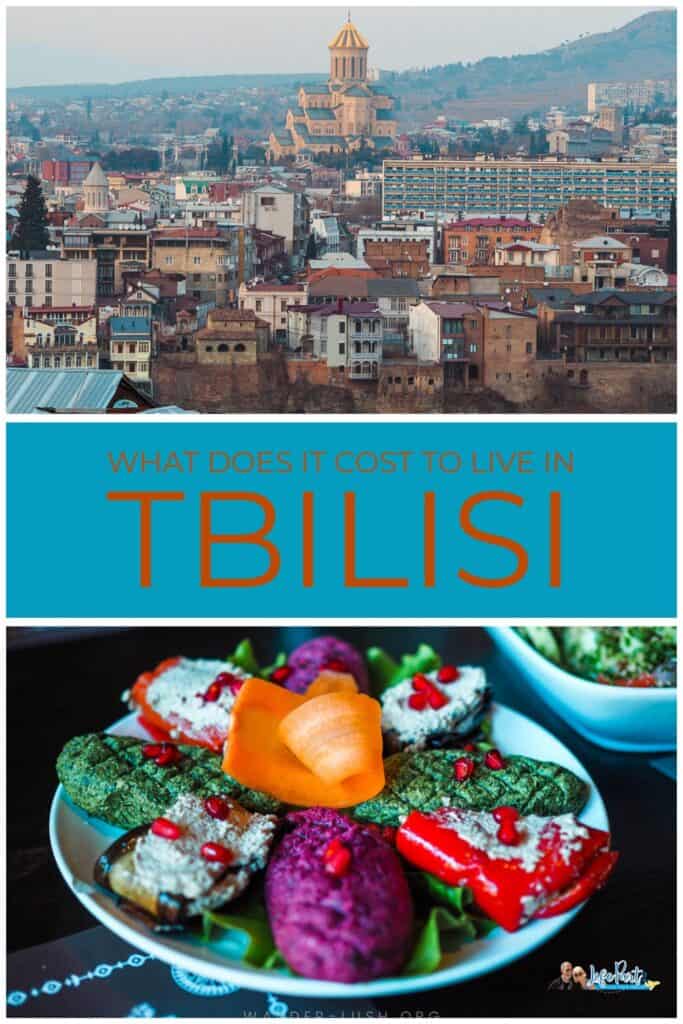



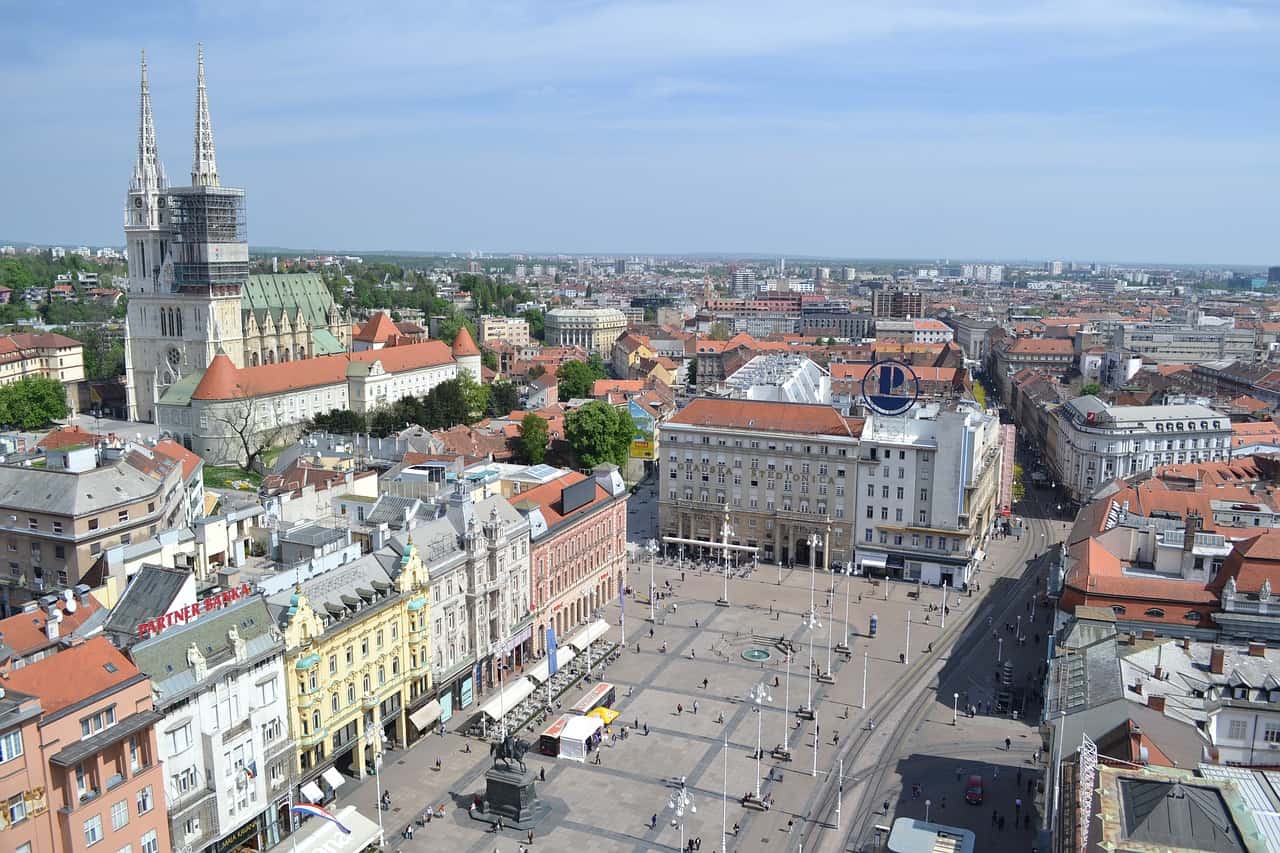



Thanks for such a comprehensive guide. The food looks delicious and the cost of living seems reasonable; I’d love to spend some time here.
The price for accommodation is severely outdated now. Rents in excess of $1000 per month are normal now since the massive influx of Russians. It is no longer a cheap place to live.
Thanks for letting me know, I guess it’s time to update this post.